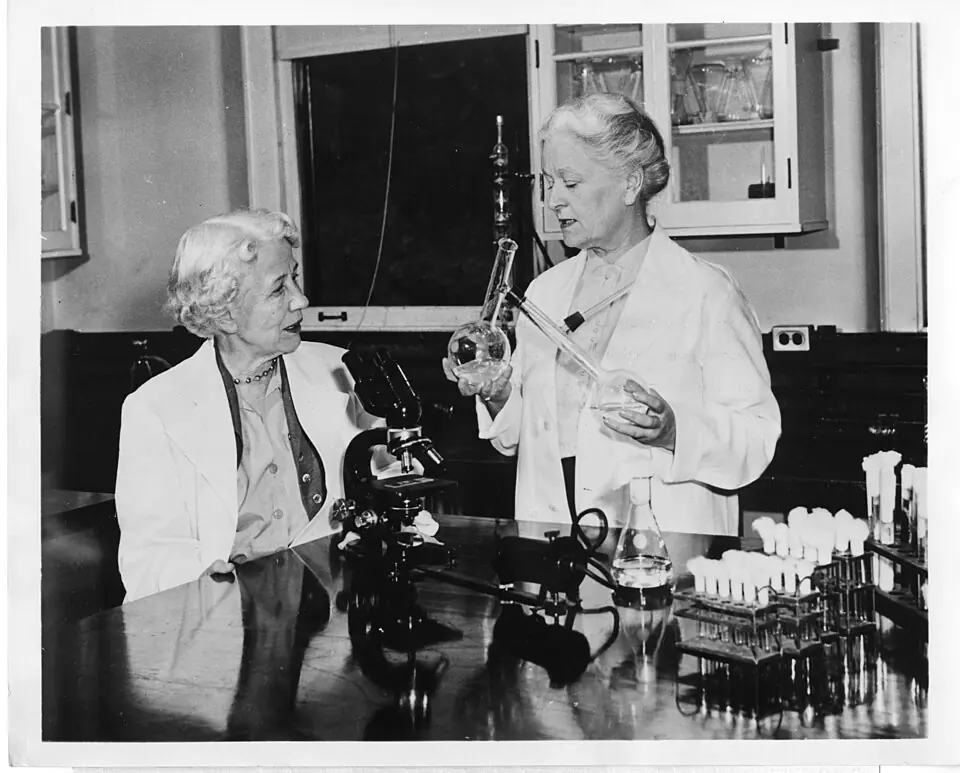According to a recent study, consuming eight or more alcoholic beverages weekly can significantly affect how the brain functions in the future.
As the summer months approach, many people find themselves enjoying a cold beer or a cocktail with friends and family, basking in the warmth of the sun. Social gatherings often seem incomplete without a drink in hand, but what if your seemingly harmless indulgence could be having a drastic impact on your health, especially your brain?
A recent study, published in the Neurology journal, has raised serious concerns about the effects of alcohol on brain function. Experts from the American Academy of Neurology (AAN) have found that consuming eight or more alcoholic drinks per week can lead to significant damage to brain health, including the development of brain lesions and cognitive impairments.
While enjoying a drink or two is often a part of social life, it is essential to understand the long-term risks associated with excessive alcohol consumption. This article will delve into the findings of this recent study, exploring how alcohol affects brain function, the condition known as hyaline arteriolosclerosis, and the long-term effects of heavy drinking on memory and cognitive abilities.

The Study: How Alcohol Affects the Brain
The study, conducted by experts from the University of São Paulo Medical School in Brazil, examined the brain health of 1,878 deceased individuals who had undergone autopsies. These individuals, who died at an average age of 75, were categorized into four groups based on their alcohol consumption: non-drinkers, moderate drinkers (seven or fewer drinks per week), heavy drinkers (eight or more drinks per week), and former heavy drinkers.
The researchers sought to investigate how alcohol consumption correlated with brain health by looking at the presence of brain lesions, which are areas of damaged tissue in the brain. Specifically, the study focused on hyaline arteriolosclerosis, a condition in which the walls of small arteries thicken and harden due to the accumulation of a pink-staining substance known as hyaline. This condition leads to the narrowing of blood vessels, impeding blood flow, and eventually causing damage to the brain.
“Heavy alcohol consumption is a major global health concern linked to increased health problems and death,” explained Alberto Fernando Oliveira Justo, PhD, the lead author of the study. “We found heavy drinking is directly linked to signs of injury in the brain, and this can cause long-term effects on brain health, which may impact memory and thinking abilities.”

The researchers found that individuals who consumed eight or more alcoholic drinks per week had a 133% higher chance of developing vascular brain lesions compared to those who abstained from alcohol. Furthermore, heavy drinkers were found to die, on average, 13 years earlier than those who did not consume alcohol. These findings highlight the severe impact that alcohol can have on both brain health and overall life expectancy.
What is Hyaline Arteriolosclerosis?
Hyaline arteriolosclerosis is a condition characterized by the thickening of the walls of small arteries (arterioles) due to the buildup of hyaline, a protein material. This process causes the blood vessels to become stiff and narrow, making it more difficult for blood to flow through them. As a result, the oxygen and nutrients that the brain needs may not be delivered adequately, leading to brain damage over time.
Hyaline arteriolosclerosis is typically seen in individuals with high blood pressure or those who have experienced long-term vascular damage. However, the study revealed that heavy alcohol consumption is also a significant factor contributing to the development of this condition. The accumulation of hyaline in the arteries disrupts the normal function of blood vessels, increasing the risk of stroke, cognitive decline, and other neurological issues.
The condition’s link to alcohol consumption is concerning, as it means that prolonged and excessive drinking can have lasting effects on both the structure and function of the brain. The thickening and stiffening of blood vessels in the brain can impede blood flow, leading to brain cell death and the development of cognitive impairments. In the long term, this can result in problems with memory, learning, and overall cognitive function.
The Impact of Alcohol on Brain Health
One of the most concerning aspects of the study was its finding that heavy drinking is linked to both vascular brain lesions and cognitive impairments. The presence of these lesions suggests that the brain is suffering from a lack of oxygen and nutrients due to the damage to blood vessels. Over time, this can result in reduced brain function, including difficulties with memory, problem-solving, and decision-making.

“Understanding these effects is crucial for public health awareness and continuing to implement preventive measures to reduce heavy drinking,” Dr. Justo emphasized. The long-term effects of alcohol on the brain can significantly impact an individual’s quality of life, leading to a decline in cognitive abilities and a higher risk of developing dementia or other neurodegenerative diseases later in life.
The study also highlights the importance of early intervention and lifestyle changes to prevent the development of brain lesions and other alcohol-related health issues. Reducing alcohol consumption and adopting healthier habits can help minimize the risks associated with excessive drinking and promote better overall brain health.
How Much Alcohol is Too Much?
The study defined heavy drinking as consuming eight or more alcoholic drinks per week. But what exactly does this mean in terms of actual alcohol consumption? According to the study’s guidelines, one drink is equivalent to 14 grams of pure alcohol, which is roughly the amount found in:
This amount of alcohol is typically consumed in one sitting, which means that having just a few drinks per week can still accumulate over time and increase the risk of developing the health issues linked to heavy drinking.
However, it’s important to note that the study didn’t solely focus on alcohol consumption in terms of quantity. It also looked at the long-term effects of alcohol on brain function, highlighting the cumulative impact of drinking over the years. Even moderate alcohol consumption can contribute to brain lesions and cognitive decline if done regularly.
The study’s findings suggest that individuals who drink heavily over extended periods are at a significantly higher risk of developing brain-related issues, including memory problems, cognitive decline, and dementia.
The Dangers of Heavy Drinking: Long-Term Health Risks
In addition to the effects on brain health, heavy drinking is associated with a wide range of other health problems. Chronic alcohol use can lead to liver damage, heart disease, high blood pressure, and increased risk of certain cancers, including liver and throat cancer. It can also weaken the immune system, making individuals more susceptible to infections and illnesses.
Furthermore, heavy drinking can have a negative impact on mental health, leading to anxiety, depression, and other mood disorders. Individuals who consume large amounts of alcohol on a regular basis are also at higher risk of developing addiction and experiencing negative social and personal consequences.
“Heavy drinking is directly linked to increased health problems and death,” Dr. Justo said. “Understanding these risks and taking preventive measures is crucial to improving public health and reducing the burden of alcohol-related diseases.”
Preventing Brain Damage from Alcohol: Steps to Take
The findings of this study are a wake-up call for individuals who consume alcohol regularly, especially in large quantities. To protect brain health and reduce the risk of developing brain lesions and cognitive impairments, experts recommend the following steps:
-
Limit Alcohol Consumption: Reducing alcohol intake is the most effective way to protect your brain and overall health. Stick to the recommended guidelines for alcohol consumption, which suggest no more than 14 drinks per week for men and women.
-
Monitor Your Drinking Habits: Keep track of how much alcohol you’re consuming on a weekly basis. Try to set limits and avoid binge drinking, which can increase the risks associated with heavy drinking.
-
Adopt a Healthy Lifestyle: In addition to cutting back on alcohol, focus on adopting a healthy lifestyle that includes regular exercise, a balanced diet, and good sleep hygiene. These habits can help improve brain health and overall well-being.
-
Seek Professional Help: If you’re struggling with alcohol addiction or feel that your drinking is negatively affecting your life, consider seeking professional help. Therapy, support groups, and counseling can provide the tools you need to reduce or eliminate alcohol consumption.
-
Regular Health Check-ups: Regular check-ups with your healthcare provider can help monitor your overall health and identify any early signs of alcohol-related damage. This can help ensure that any health issues are addressed before they become more serious.
Conclusion: Protecting Your Brain from the Dangers of Heavy Drinking
The results of this study are a stark reminder of the risks associated with heavy drinking, particularly when it comes to brain health. The development of brain lesions and cognitive impairments due to alcohol consumption can have a long-term impact on quality of life, leading to difficulties with memory, thinking, and decision-making.
By understanding the risks associated with alcohol and taking proactive steps to reduce consumption, individuals can protect their brain health and minimize the likelihood of developing alcohol-related diseases. The key is moderation and adopting a healthy lifestyle that prioritizes overall well-being.
Heavy drinking is a serious global health concern, but with increased awareness and preventative measures, we can reduce the long-term effects of alcohol on our brains and bodies. The choice to limit alcohol intake and make healthier choices can make a significant difference in maintaining cognitive function and improving overall health as we age.



































